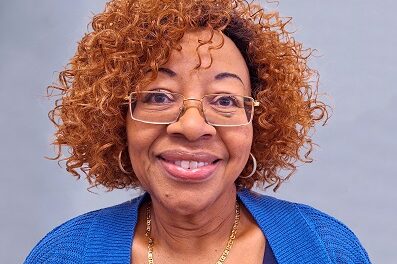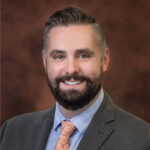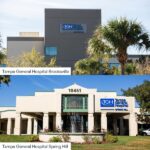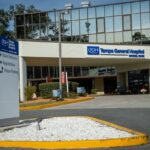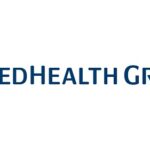 Nova Southeastern University’s Fischler School of Education (FSE) and College of Osteopathic Medicine (COM) continue their long-standing collaboration by offering a Master’s Degree in Medical Education. The online two-year program is targeted toward medical professionals who wish to develop and enhance their teaching skills. Dr. Mary Ann Lowe, Associate Dean at FSE, says the degree has broad appeal, as it touches on a variety of disciplines within the medical profession. While the primary focus of the MS in Medical Education is to provide graduate teaching skills for medical professionals who want to teach, the degree will enhance the qualifications of those in a variety of vocations, including M.D.s, D.O.s, optometrists, pharmacists, dentists, and nurses.
Nova Southeastern University’s Fischler School of Education (FSE) and College of Osteopathic Medicine (COM) continue their long-standing collaboration by offering a Master’s Degree in Medical Education. The online two-year program is targeted toward medical professionals who wish to develop and enhance their teaching skills. Dr. Mary Ann Lowe, Associate Dean at FSE, says the degree has broad appeal, as it touches on a variety of disciplines within the medical profession. While the primary focus of the MS in Medical Education is to provide graduate teaching skills for medical professionals who want to teach, the degree will enhance the qualifications of those in a variety of vocations, including M.D.s, D.O.s, optometrists, pharmacists, dentists, and nurses.The objective of helping medical professionals become better teachers is a worthy one, as it fulfills a pressing need. Throughout the 80s and 90s, the U.S. experienced a significant drought in the establishment of new medical schools – only one such institution opened during the period. This deficiency compelled promising students to pursue alternative career paths, as many of them either enrolled in offshore schools or abandoned medicine altogether. The trend also forced American hospitals to fill residencies with foreign-born and foreign-trained physicians.
In this second decade of the new millennium, however, this downward trend has reversed dramatically. Not since the 60s and 70s have so many new medical schools opened stateside. Since last year, 19 such institutions have either opened or begun the process of securing accreditation. According to an article in the N.Y. Times, that marks a nearly unprecedented pattern of growth: “if all the schools being proposed actually opened, they would amount to an 18 percent increase in the 131 medical schools across the country.”
The increasing need to educate doctors responds to several societal trends. Namely, according to the Times article, “a growing population; the aging of the health-conscious baby-boom generation; the impending retirement of, by some counts, as many as a third of current doctors; and the expectation that changes in health care policy will eventually bring a tide of newly insured patients into the American health care system.”
The upshot is that the U.S. needs more doctors and, accordingly, more teachers to educate this new generation of aspiring practitioners. The timing for NSU’s re-instatement of the M.S. in Medical Education is thus right on cue. First established as a pilot program in 2003, the degree originally served to educate a cadre of NSU health care professionals. It was thus discontinued in 2005 when enrollees graduated and went on to work as Nova Faculty.
The current incarnation of the program is targeted towards medical professionals from all walks of life – from locations across the country and around the globe. Dr. Lowe recognizes that there are certain obstacles to overcome in order to garner interest: “One challenge of attracting applicants to this sort of program is helping them balance their professional lives with the demands of earning an advanced college degree.”
The distance-learning paradigm responds to this challenge. The new M.S. in Medical Education is a comprehensive program of online instruction. It thus allows medical professionals to earn a degree without the time, expense, and disruption of re-location. Says Dr. Lowe, “The strength of the NSU program is that it is online except for a portion of the first and the last courses.” Students attend an intensive weekend class on-site in Ft. Lauderdale during the first and last semesters. “This will be a time to meet others in the class as well as to receive an extensive introduction to the two-year program. Students also begin to develop a portfolio that they’ll present during the last class of the degree program.”
The model works because it allows students to get crucial face time with their professors and colleagues. The initial in-person consultations and conversations help to establish the kind of collegial rapport that stimulates deep immersion and effective learning. After the initial class – having received the guidance and support to help create a successful outcome – students return to their respective professions as they begin the program of online instruction.
The ease with which students are able to integrate the MS in Medical Education into their busy professional lives is but one incentive for enrolling in this exciting and innovative program – and the rapidly increasing demand for excellent educators of future doctors is a second. But perhaps the greatest incentive is the pure pleasure of teaching. As many medical professionals have discovered, sharing their specialized knowledge with students and colleagues can be tremendously rewarding. By helping such professionals to become full time teachers, Nova’s MS in Medical Education augments these rewards several-fold.




